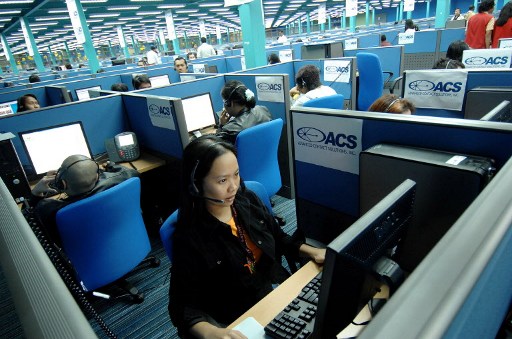SUMMARY
This is AI generated summarization, which may have errors. For context, always refer to the full article.

MANILA, Philippines – The Business Process Outsourcing (BPO) players in the Philippines welcomed the passing of the Cybercrime Prevention Act of 2012, which they said is crucial in keeping this dollar earning industry globally competitive.
But they also lamented the libel and Internet freedom provisions, which they said were “last minute provisions” that lawmakers did not consult them about.
“It is unfortunate that last-minute provisions on libel and freedom of the Internet were inserted into this important bill without the benefit of stakeholder perspective, including ours,” industry association Business Processing Association of the Philippines (BPAP) said in a statement on Thursday, October 4.
The position of BPAP, which has long been pushing for legislative measures to safeguard the system and data crucial to doing their business, comes after journalists, bloggers, non-government organizations, and other groups contest these provisions in the law, which took effect on October 2.
Several cases have been filed before the Supreme Court to stop penalizing online libel and cybercrime through data interference, and grant the Department of Justice (DOJ) the power to shut down sites that contain harmful content based on prima facie evidence.
“Although we are individually concerned about the last-minute insertion of the provision on libel, BPAP members are collectively more concerned about the similarly last-minute provision on warrantless collection of traffic data. However, since a case has already been filed with the Supreme Court regarding this provision, we will refrain from commenting about it and would defer to the wisdom of the Supreme Court’s decision on the matter,” the group added.
BPO benefits from Cybercrime Law
The BPO players in the Philippines have long been lobbying for both the Cybercrime Law and the Data Privacy Act to add layers of protection against theft and fraud that they said will reassure their global clients.
Republic Act No. 10175, known as the Cybercrime Prevention Act of 2012, was signed into law by President Benigno S. Aquino III on September 12. Also signed was the Data Privacy Act, which requires the protection and preservation of personal data collected by public agencies and private organizations.
“The Cybercrime Prevention Act is meant to provide the resources and legal framework to identify, prevent, and impose punishment for Internet-based crimes and safeguard users’ online information from unauthorized data collectors,” said the BPAP.
“Because IT-BPO firms utilize the Internet and computer technology as the principal channel for communication processes, the industry will benefit from provisions covering system and data protection, device security, and penalties for computer-related offenses,” it stressed.
In 2011, the IT-BPO industry generated $11 billion in revenues and employed approximately 640,000 people. According to an industry roadmap, the industry is projected to become a $25-billion industry by 2016 and to provide high-paying jobs to 1.3 million Filipinos. – Rappler.com
| . | More on the Cybercrime Law: |
Add a comment
How does this make you feel?
There are no comments yet. Add your comment to start the conversation.